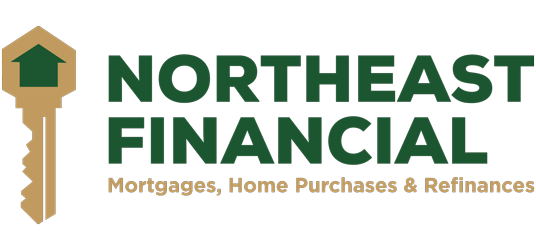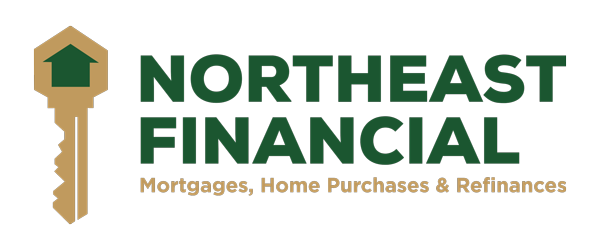
When you’re purchasing or refinancing a home with a conventional loan, an appraisal is typically required to assess the value of the property. However, in some cases, Fannie Mae and Freddie Mac offer appraisal waivers, which allow certain buyers or homeowners to skip the traditional appraisal process. This can save time, reduce closing costs, and streamline the loan approval process. But how do these waivers work, and when can you qualify for one?
Let’s dive into the ins and outs of conventional loan appraisal waivers, including when you might qualify and what to expect if your property is subject to a property data report.
 What Is an Appraisal Waiver?
What Is an Appraisal Waiver?
An appraisal waiver means that Fannie Mae or Freddie Mac accept the estimated value of the property based on automated valuation models (AVMs) rather than requiring a full, in-person appraisal. These automated models use data from public records, comparable sales, and other market data to assess the value of a home.
Appraisal waivers—also known as “value acceptance”—can be a huge advantage for homebuyers and refinancers. They allow for quicker loan processing, often saving you the cost of a full appraisal, which can range from $400 to $600 or more.
When Do You Qualify for an Appraisal Waiver?
Several factors determine whether you may qualify for an appraisal waiver:
- Type of Loan: Appraisal waivers are generally available on conventional loans backed by Fannie Mae and Freddie Mac. However, the loan must meet specific criteria, which may vary slightly between the two agencies.
- Loan Purpose: You’re more likely to be eligible for an appraisal waiver if you’re refinancing an existing loan, especially if the loan is owned by Fannie Mae or Freddie Mac. For purchase loans, you might also qualify if you have a strong credit profile and a large down payment.
- Loan-to-Value Ratio (LTV): Lower LTV ratios—typically below 80%—increase the chances of qualifying for an appraisal waiver. This means if you’re making a large down payment on a purchase loan or if you have substantial equity in your home when refinancing, you’re more likely to get a waiver.
- Property Type: Single-family homes, condos, and townhomes are more likely to qualify for appraisal waivers than multifamily homes or investment properties.
- Property Location and Market Conditions: Homes in stable, well-documented markets are more likely to receive appraisal waivers. If your home is in an area where home values are more volatile, you might not be eligible.
- Creditworthiness: A strong credit score and a consistent financial history can improve your chances of qualifying for an appraisal waiver. Lenders use your overall financial health to help determine if your loan can be processed without a full appraisal.
Value Acceptance with Property Data Report Requirements
While an appraisal waiver is ideal for many borrowers, it’s important to note that sometimes Fannie Mae or Freddie Mac may issue a “value acceptance” but still require a property data report. This is where things get a bit more nuanced.
A property data report is essentially a hybrid between a full appraisal and a waiver. While you won’t need a traditional appraisal, Fannie Mae or Freddie Mac will require data to be collected about the property. This data is typically gathered by a third-party vendor, and it ensures that:
- The property is in good condition: They want to confirm that there are no major structural issues, damage, or disrepair that could affect the home’s value.
- Accurate market data is collected: This helps Fannie Mae and Freddie Mac refine their automated valuation models. By gathering more detailed information about properties, they improve their ability to estimate home values across different markets.
Why Would a Property Data Report Be Required?
Fannie Mae and Freddie Mac use AVMs to assess home values, but these models rely heavily on accurate, up-to-date data. If a home hasn’t been recently sold or inspected, or if there’s uncertainty in the local housing market, they may require additional property data to confirm that their valuation is correct. This added step ensures they’re lending on properties that meet their standards while improving the overall accuracy of their valuation tools for future transactions.
Key Benefits of Appraisal Waivers and Property Data Reports
- Cost Savings: With an appraisal waiver, you avoid the cost of a full appraisal, which can be especially valuable during a refinance. Even with a property data report, the cost is generally lower than a full appraisal.
- Faster Loan Approval: Skipping a full appraisal speeds up the loan process, which can be particularly important if you’re trying to close quickly.
- Less Intrusiveness: For homeowners refinancing, avoiding an appraiser walking through your home during the process can be an added convenience.
- Makes Your Offer Stand Out: If you’re a buyer in a competitive real estate market, an appraisal waiver can give you an edge. In markets where bidding wars are common, sellers may worry about the property not appraising for the purchase price, leading to delays or negotiations. With an appraisal waiver, you eliminate this concern since there’s no risk of a low appraisal derailing the deal. This could make your offer more attractive, especially when competing with multiple buyers.
When an Appraisal Is Still Required
In some cases, even if you’re close to qualifying for an appraisal waiver, Fannie Mae or Freddie Mac may still require a full appraisal. This could happen if:
- The AVM produces inconclusive results: If there’s not enough data on comparable properties in your area, the automated valuation model may not be able to produce an accurate estimate.
- You’re purchasing a unique property: Homes that are highly customized, historic, or located in less developed areas are harder to evaluate with an AVM.
- High Loan-to-Value (LTV) Ratios: If your LTV ratio is high, meaning you have less equity or are making a smaller down payment, the risk to the lender is higher, and a full appraisal may be required.
An appraisal waiver can be a major benefit when you’re buying or refinancing a home, potentially saving you time and money. In a competitive real estate environment, it can also make your offer stand out by removing the risk of an appraisal coming in low, which gives sellers more confidence in your offer. However, the process isn’t always cut and dried—sometimes Fannie Mae or Freddie Mac may still require a property data report to ensure the home’s condition and collect valuable market data.
If you’re interested in learning more about your eligibility for an appraisal waiver or how property data reports work, it’s always a good idea to discuss the details with your loan officer. They can guide you through the process and help you determine the best course of action for your specific situation.

- by Northeast Financial
- on October 4, 2024

